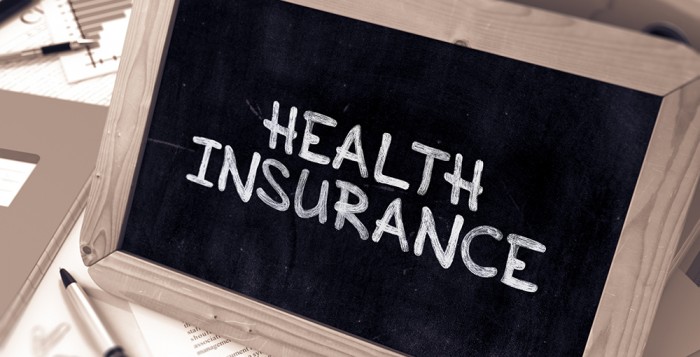ODP Shares Information From Provider Technology Solutions Readiness Session
The Pennsylvania Office of Developmental Programs (ODP) shared information on how the Provider Technology Solutions Readiness Assessment can guide your agency towards innovation and transformative technology adoption for the people you support. Customized for the Commonwealth of Pennsylvania, the Provider Readiness Assessment is a self-administered evaluation designed for service provider organizations interested in adopting or expanding the use of supportive technology and technology solutions for people with disabilities and older Pennsylvanians. The results of this assessment will assist your organization in understanding areas of strengths and needs for successful technology implementation and provide recommendations for sustainable change.
Handouts shared today:
ODP Provides Written Notice of AAW SCO Requalification Requirements
The Office of Developmental Programs (ODP) has shared ODPANN 26-008. This communication is to inform all Adult Autism Waiver (AAW) Supports Coordination Organizations (SCO), whose last digit of their Master Provider Index (MPI) number is 6, 7, 8, or 9 as well as new SCOs who enrolled in the AAW during fiscal year 2024/25, that they must submit their qualification documentation to the Office of Developmental Programs (ODP), Bureau of Supports for Autism and Special Populations (BSASP) between February 1, 2026, through March 31, 2026.
Documentation must include a completed AAW SCO Qualification form and SCO Qualification Documentation Record, as well as any other required supporting documentation.
Please view the announcement for more details.
Contact Your Member of Congress Regarding Healthcare Affordability
IPRC Follow-Up Webinar: A Deep Dive Into CARF’s NEW Standards for Disorders of Consciousness

Thursday, January 22, 2026
3:00 pm – 4:00 pm ET; 2:00 pm – 3:00 pm CT;
1:00 pm – 2:00 pm MT; 12:00 pm – 1:00 PT
Register Here
You asked, and we listened! Based on attendee feedback, IPRC is offering a follow-up presentation to pair with the information presented on January 6, 2026. This webinar will provide information on the new Disorders of Consciousness Program Standards in greater detail.
Please join us as IPRC again hosts special guest Terry Carolan from CARF International to explain the new Disorders of Consciousness Program Standards.
Presenter Bio:
Terrence Carolan
Terrence Carolan, Managing Director of the Medical Rehabilitation and Aging Services accreditation areas at the Commission on Accreditation of Rehabilitation Facilities (CARF), has more than 20 years of experience as a provider, administrator, and educator in the human services field. Terry joined CARF after working in clinical and administrative leadership positions within Select Medical’s Inpatient Rehabilitation Division and the Kessler Institute for Rehabilitation since 2001. Terry was a CARF surveyor for 10 years and holds a degree in physical therapy from Simmons College in Boston. He also recently completed his master’s degree in business administration from the University of Wisconsin-Eau Claire.
Objectives: At the end of this session, the learner will:
- Discuss the CARF International Disorders of Consciousness (DoC) Program Standards in detail; and
- Identify the process for applying for Accreditation for a Disorders of Consciousness Specialty Program.
Audience: This webinar is intended for all interested members of the rehabilitation team; attendees do not need to be CARF Certified in order to attend.
Level: Beginner-Intermediate
Certificate of Attendance: Certificates of attendance are available for all attendees. No CEs are provided for this course.
RCPA Announces Our 2026 Annual Conference Call for Proposals!
The 2026 RCPA Annual Conference Power in Purpose: Promoting Possibilities will be held September 29 – October 2 at the Hershey Lodge for a statewide audience. RCPA’s Conference Committee is seeking workshop proposals in every area for possible inclusion, particularly those that assist providers in developing and maintaining high-quality, stable, and effective treatments, services, and agencies in an industry where change is constant. The committee looks for presentations that:
- Discuss strategies for C-Suite leadership to advance their organization with adapting to challenges and opportunities;
- Provide guidance on building a culture of a committed workforce, including recruitment and employee development as well as effective remote workforce strategies;
- Highlight new policy, research, and treatment initiatives, such as the use of artificial intelligence and technology in service provision;
- Provide specific skills and information related to individual and organizational leadership development and enhancement;
- Discuss advanced ethics practices and suicide prevention; and/or
- Address system changes that affect business practices, including integrated care strategies, value-based purchasing, performance-based contracting, acquisitions and mergers, and alternative payment models.
The committee welcomes any proposal that addresses these and other topics essential to rehabilitation, mental health, substance use disorder, children’s health, aging, physical disabilities, intellectual/developmental disabilities, and autism. Members are encouraged to consider submitting, and we highly encourage you to forward this opportunity to those who are exceptionally good speakers and have state-of-the-art information to share.
The Call for Proposals (featuring a complete listing of focus tracks) and accompanying Guidelines for Developing Educational Objectives detail requirements for submissions. The deadline for submissions is COB Monday, March 23, 2026. Proposals must be submitted electronically with the form provided; confirmation of receipt will be sent. Proposals submitted after the deadline may not be considered.
If the proposal is accepted, individuals must be prepared to present on any day of the conference. Workshops are 90 minutes in length. If the topic requires an in-depth presentation, a double session can be scheduled for a total of 180 minutes. At the time of acceptance, presenters will be asked to confirm the ability to submit workshop slides and handouts electronically two weeks prior to the conference. Individuals unable to meet this expectation may not have their materials available to participants during the conference.
Individuals are welcome to submit more than one proposal; however, we ask that you submit no more than three total. Notification of inclusion for the conference will be made via email by Monday, May 11, 2026. Questions may be directed to Carol Ferenz, Conference Coordinator.
Upcoming Trainings for ODP’s Life Sharing Waiver Service Announced
The Office of Developmental Programs (ODP) wants to continue to expand the use of the Life Sharing service, as this service is rated as having one of the highest satisfactions by individuals for having an everyday life (IM4Q data). ODP is hosting two webinars to provide education and an explanation about the Life Sharing service.
To register:
- Expanding Life Sharing — Friday, February 27
- Life Sharing: An Option for an Everyday Life for Individuals and Families — Monday, March 2
Please see ODPANN 26-007 for more details.
WellKids by RCPA Member PA Health & Wellness to Join CHIP Network
The Pennsylvania Department of Human Services announced that WellKids by RCPA Member PA Health & Wellness will join the network of managed care organizations that offer health coverage through the Children’s Health Insurance Program (CHIP). This marks the first CHIP re-procurement since 2013, expanding the number of affordable health coverage options for children and teens in Pennsylvania. Effective January 2026, CHIP will operate a network of nine managed care organizations, providing comprehensive health coverage for eligible children across the state.
CHIP serves children and teenagers up to age 19 who are not eligible for Medicaid, offering health coverage for free or at a low cost based on family income and providing a variety of insurance plans to best meet a family’s needs. WellKids by PA Health & Wellness will provide a full range of services, including preventative, routine, urgent, and emergency care for physical and behavioral health, as well as coverage for dental, vision, and pharmacy services.
Contact RCPA Policy Associate Emma Sharp with any questions.
ASERT Seeks Volunteers for Art Therapy Research Opportunity

UPDATE: Notice of Change to Federal Reimbursement of Transportation Costs
The Office of Developmental Programs (ODP) has shared an update to ODPANN 26-005, which was posted yesterday, January 12, 2026. The purpose of this update is to clarify calculation methods for the new federal reimbursement for transportation costs. All updated information will appear in red, underlined font.
NOTE: The release of this communication obsoletes ODP Announcement 25-004.
Please view the announcement for more details.
















